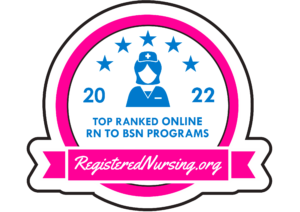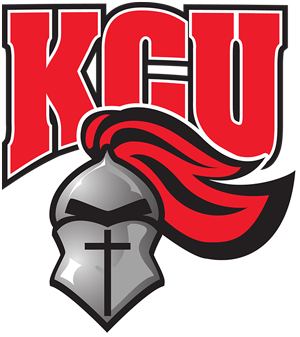RN – BSN (Online)

Kentucky Christian University’s fully online RN-BSN program is known for providing high quality, student-centered teaching and learning practices that lead to the development of professional baccalaureate nurses. The program of study is structured to prepare nurses to flourish and advance in the ever-changing health care field and help propel practicing nurses into leadership roles.
Because the coursework is fully online, you have the freedom to complete it on your schedule. This program is perfect for the working registered nurse who desires to take his or her career to the next level. Our highly qualified and experienced faculty understand the complexity of incorporating school into your already busy life. We strive to serve the unique needs of each student ONE. CLASS. AT. A. TIME.
Program Highlights
- Course work is fully online and designed to immerse students in an interactive, supportive learning environment
- Learn from experienced, well-qualified faculty
- Small cohorts foster individualized educational experience
- Earn BSN in 18 months of study
- Complete clinical components in home community
- Integrate Christian faith into roles within nursing profession
- Develop skills to propel into leadership positions
- Prepare for pursuit of advanced nursing degrees
- Affordable tuition
Mission Statement
Additional Information
Student Outcomes
A Graduate Of Kentucky Christian University Yancey School Of Nursing Is:
- A caring and competent provider, designer, and coordinator of nursing care who demonstrates integrity, biblical values, and nondiscrimination in health promotion and illness management.
- A critical thinker who employs the nursing process and provides evidence based health care information to individuals, families, and communities empowering them to make informed choices and decisions.
- A caring and competent manager of nursing care in a variety of settings respecting the dignity and worth of each patient regardless of ethnic identity, race, gender, age, status, diagnosis, or ability to pay.
- An effective communicator who uses leadership skills to collaborate and partner with patients, families, communities, and other health care providers to promote wellness and effect social change for a healthy environment.
- A professional practitioner and lifelong learner who understands health care systems and health care policy, encouraging legislation and policy consistent with the advancement of nursing care and health care.
Admissions Process
Admission Criteria
- Valid, non-restricted license as a registered nurse in a United States jurisdiction
- Cumulative college GPA of 2.5 or higher
- Two satisfactory references (1 from a direct supervisor and 1 personal)
Application Process
1. You can apply to KCU’s RN-BSN program HERE
2. Submit the following documents:
- Resume
- 2 references (1 from a direct supervisor and 1 personal)
- Official copies of transcripts from your high school and all colleges attended
3. Send all Admissions documents to:
Kentucky Christian University
ATTN: Admissions Department
100 Academic Parkway
Grayson, KY 41143
Application Deadlines
* Complete indicates all required documentation and the online application have been received
FAQs
Below is a list of commonly asked questions among students and their families. If you cannot find the answer to your question among those listed below, please feel free to contact us at 1(606)-474-3255.
Q: How many credit hours is the RN-BSN program?
- The RN-BSN program is 36 credit hours. To graduate with a BSN, students must complete a total of 120 credit hours. This includes all KCU registrar approved courses transferred to KCU from accredited institutions.
Q: What electives are required?
- No specific prerequisites are required. Students must complete the Arts & Sciences core, the RN-BSN program of study, and have a total of 120 credit hours. Most students need a history elective and/or a humanities/fine arts prerequisites to complete the Arts & Sciences core.
Q: If I need to complete electives, will they be available online through KCU?
- Yes, KCU will provide an online option for completion of elective hours.
Q: Are there program components that require a visit to campus?
- No, the program is fully online. While students are welcome to visit us on campus, all aspects of the program including registration, academic advising, clinical activities, bookstore purchases, and bill payments can be completed online.
Q: Do any of the courses have a clinical component?
- Yes, three of the courses have clinical components. The clinical requirements are fulfilled independently by students in their home communities.
Q: Do any of the courses have scheduled times when I have to be available online?
- No, the program is designed in an asynchronous format. The courses all have established deadlines for assignments and projects. The student completes assignments at a time convenient for him or her.
Q: What are the costs?
- Refer to the Program Costs page
Q: I have never taken online classes. Is there technology assistance available for me?
- Yes, the program is designed to gradually introduce students into various types of technology that are incorporated into the courses. The University provides technology support and a distance education librarian is embedded in all online course sites.
Q: How long does the program take to complete?
- The program is usually 18 months of study over a two year period. Courses are offered during the fall, spring, and summer semesters with scheduled breaks throughout the program.
Required Course Listing
Total Program Hours: 120
Composition I
Composition II
Developmental Psychology
History Elective
Humanities Elective
Math Elective
Science Elective: A&P I
Social Science: Intro to Psychology
Theology of Wellness
Composition I
Composition II
Developmental Psychology
History Elective
Humanities Elective
Math Elective
Science Elective: A&P I
Social Science: Intro to Psychology
Theology of Wellness
Christian Heritage
Ethics and Medicine (or BIO 454)
Theology of Wellness
Christian Heritage
Ethics and Medicine (or BIO 454)
Theology of Wellness
A&P II
Application of Prof. Practice Concepts
Community Health Nursing
Health Assessment/Clinical Prevention
Improving Nursing Practice with Tech
Intro to Nursing Research
Intro to Online Learning
Intro to Statistics
Nursing Leadership and Prof. Practice
Transition to Professional Practice
A&P II
Application of Prof. Practice Concepts
Community Health Nursing
Health Assessment/Clinical Prevention
Improving Nursing Practice with Tech
Intro to Nursing Research
Intro to Online Learning
Intro to Statistics
Nursing Leadership and Prof. Practice
Transition to Professional Practice
Additional Course Notes
Opportunity to Use My Abilities for God
“At KCU I was able to learn under the guidance of the best ministry professors and administrators. KCU gave me my first opportunity to use my abilities for God. KCU gave me an opportunity to excel athletically, artistically, and academically. But most of all, when I look back on my time at KCU, I will remember the people. I will remember the smiles, I will remember the laughs my friends and I shared. KCU is a family and one I am very proud to be in.”
Cody Sabol, Class of 2017


